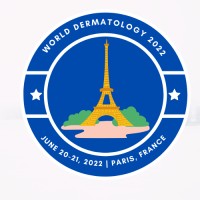
Gary Pekoe, Neal Koller
Alphyn Biologics, Inc., United States
Title: A novel drug substance with multiple bioactive compounds to target the multiple causes of atopic dermatitis
Biography
Biography: Gary Pekoe, Neal Koller
Abstract
Atopic dermatitis (AD) is an inflammatory skin disease. 1 Staphylococcus aureus bacteria and its highly infectious and difficult to kill MRSA drug resistant variant (S. aureus and MRSA) have been shown to make AD worse and to prevent its healing. 2 AD generally presents early in life and maintains a lifetime prevalence in approximately 20% of populations. 1 The present study demonstrated the capability of a novel drug substance with multiple bioactive compounds (NDS) to target the multiple problems of AD, specifically the inflammation and associated pruritus (itch) of AD, and, the S. aureus and MRSA that exacerbate AD and prevent its healing. The present study utilized the Folin-Ciocalteu test (FC) to evaluate the NDS antioxidant activity. The FC test is a direct indicator of antiinflammatory activity. This study further evaluated the anti-bacterial activity of the NDS utilizing the Minimum Inhibitory Concentration (MIC) test, the Zone of Inhibition (ZoI) test and the Time Kill test. The results of the FC test demonstrated the NDS has very high antioxidant activity tying the NDS to anti-inflammatory and anti-pruritic capability for AD. The results of the MIC test, ZoI test and the Time Kill test showed the NDS is highly effective in killing S. aureus and MRSA, as well as other Gram positive and Gram negative multi drug resistant bacteria including Streptococcus pyogenes and Pseudomonas aeruginosa, demonstrating the NDS potential effectiveness in eliminating the bacterial causes of AD. In summary, the present study demonstrated the NDS to be a promising potent therapeutic for AD. These results additionally suggest the NDS may also work singularly as an effective anti-inflammatory or as an effective broad-spectrum antibiotic. The NDS is currently in a Phase 2a human clinical trial to uniquely treat both infected and non-infected AD.

